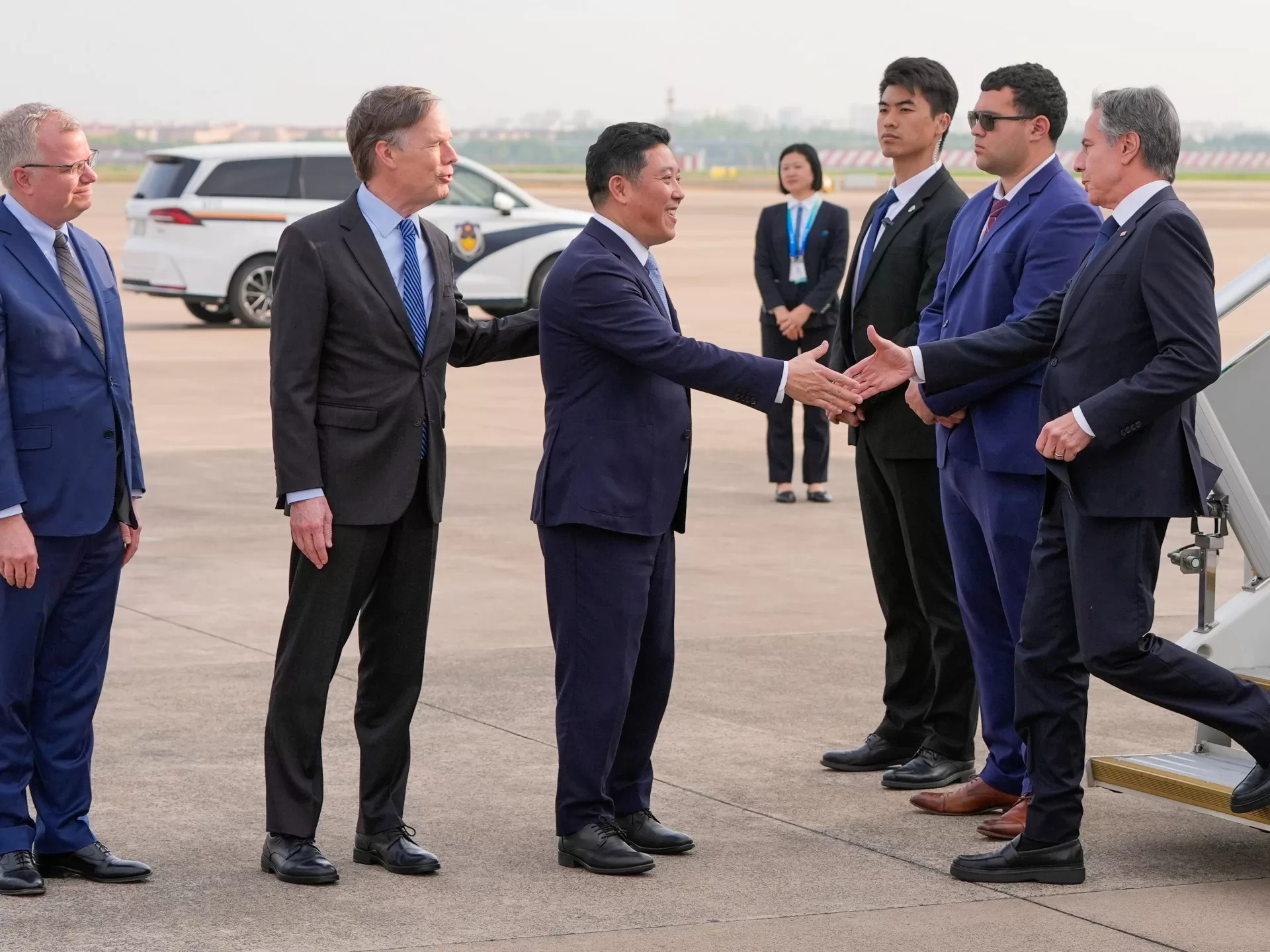The trip comes after US Senate’s approval of a bill that will provide billions of dollars in assistance to Ukraine, Israel and Taiwan.
Blinken, who landed in Shanghai on Wednesday, is expected to meet business leaders in the city before heading to Beijing for talks on Friday with his counterpart, Foreign Minister Wang Yi, and a likely meeting with President Xi Jinping.
Beijing and Washington have said the trip is about strengthening dialogue and stabilising their rocky bilateral relationship.
The trip comes just hours after the US Senate voted for a large foreign aid package and shortly before President Joe Biden is expected to sign it into law.
The bill sets aside eight billion dollars to counter Chinese threats in Taiwan and the broader Asia Pacific and gives China’s ByteDance nine months to sell TikTok with a possible three-month extension if a sale is in progress.
Beijing is also seeking to resolve several other issues with Washington, among them the US accusations that China is fuelling the fentanyl opioid crisis in the United States.
Ukraine is also expected to be a central topic of discussion during Secretary Blinken’s visit, focusing on the Biden administration’s claims that China has allowed Russia to largely reconstitute its defence-industrial base, affecting not only the war in Ukraine, but posing a threat to broader European security.
“If China purports on the one hand to want good relations with Europe and other countries, it can’t on the other hand be fuelling what is the biggest threat to European security since the end of the Cold War,” Blinken said last week.
China has said it has the right to trade with Russia and accused the US of exacerbating the war by arming and funding Ukraine.
“It is extremely hypocritical and irresponsible for the US to introduce a large-scale aid bill for Ukraine while making groundless accusations against normal economic and trade exchanges between China and Russia,” Chinese Foreign Ministry spokesperson Wang Wenbin said on Tuesday.
In the Middle East, Blinken has encouraged China to press Iran more actively to not escalate tensions in the region.
He has spoken to his Chinese counterpart, Wang Yi, several times urging China to tell Iran to restrain the proxy groups it has supported in the region, including Gaza’s Hamas, Lebanon’s Hezbollah, Yemen’s Houthis and Iranian-backed militias in Iraq and Syria.
While China appears to have been generally receptive to such calls, tensions have steadily increased since the beginning of Israel’s war on Gaza.
